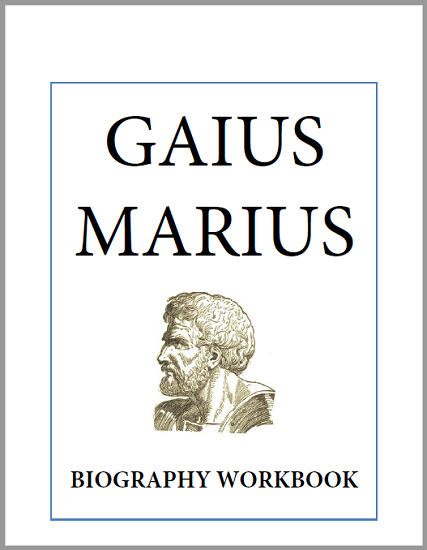| Answer Key: 1. 48; 2. Arpinum; 3. Populares; 4. Praetor; 5. Jugurtha wanted terms, and the consul demanded unconditional surrender; 6. Metellus did not want to give Gaius Marius leave to run for office; 7. Successful generals were hard to remove from office; 8. He believed that paid soldiers would be better trained, better disciplined, and more effective; 9. Answers will vary; 10. They still had an interest in war and the prestige that went along with soldiering; 11. Less than two years; 12. Lack of land; 13. Barbarian tribe from northern Europe; 14. These were wealthy noble men (patricians) with no military training; 15. Answers will vary; 16. Answers will vary; 17. A - True; 18. July 20, 102 BCE; 19. Answers will vary, but should include the fact that voting soldiers came to dominate and control Roman politics; 20. If the Roman Senate could not govern, far less could the Roman mob govern; 21. Memmius led the moderate faction, while Glaucia and Saturninus led the radical faction; 22. That the spoils of the empire should be fought for among themselves; 23. The Romans needed soldiers; 24. Answers will vary, but should include the fact that the Populares and provincials shared a common enemy—the patricians in the Roman Senate; 25. Sulla; 26. He led his troops into the city itself, and lighted his watch-fires in the Forum; 27. Africa; 28. Answers will vary, but should center on the harsh way he was treated despite being a war hero; 29. 50; 30. 7; 31. Answers will vary. |













